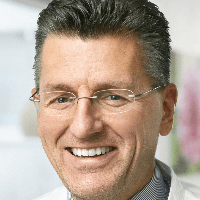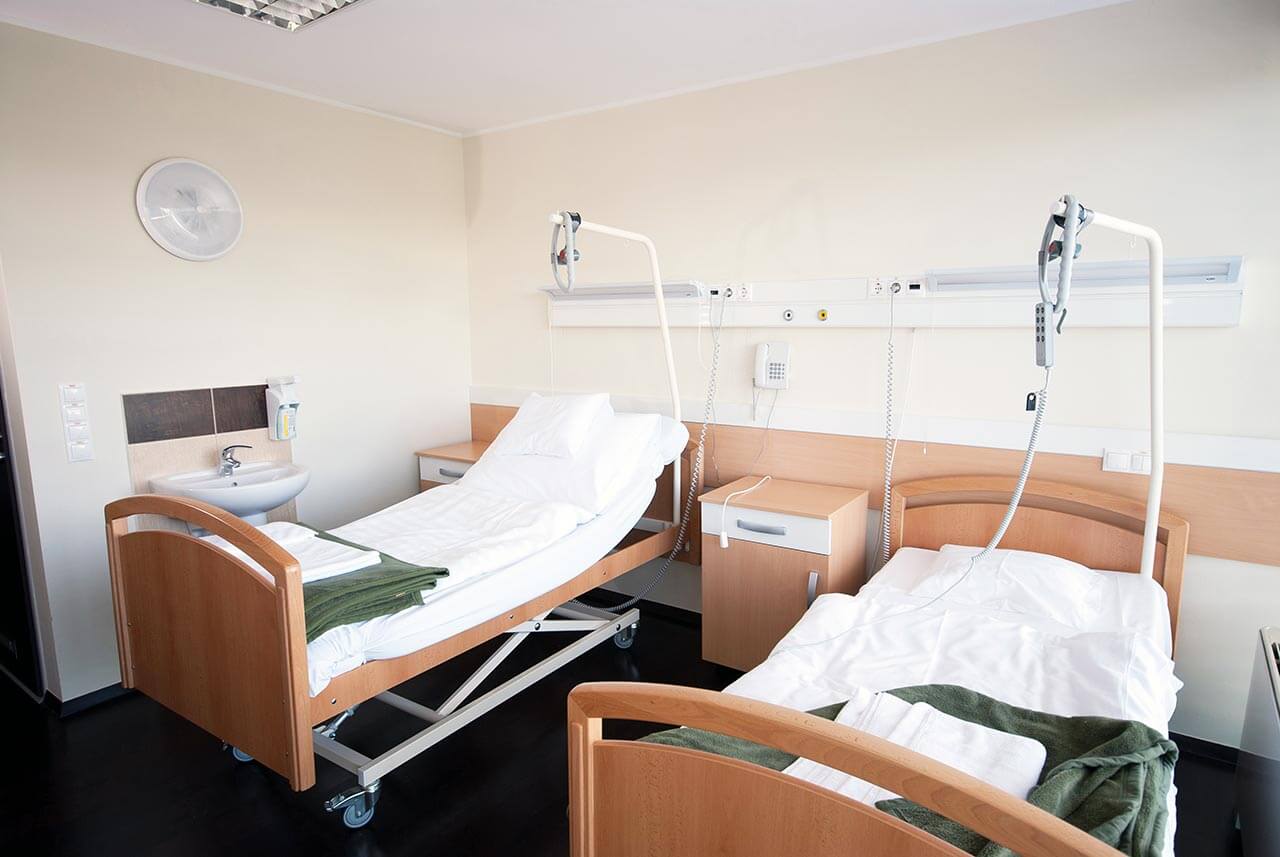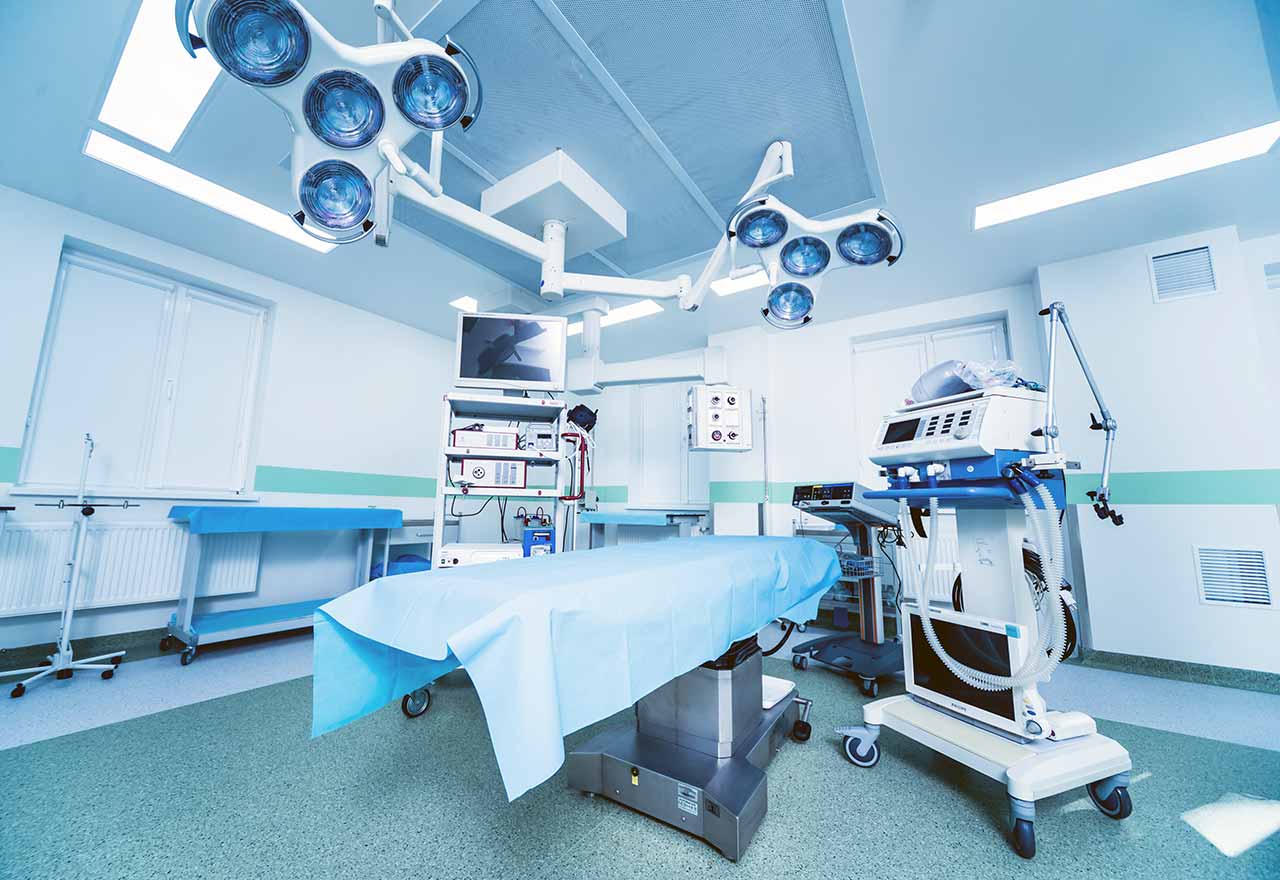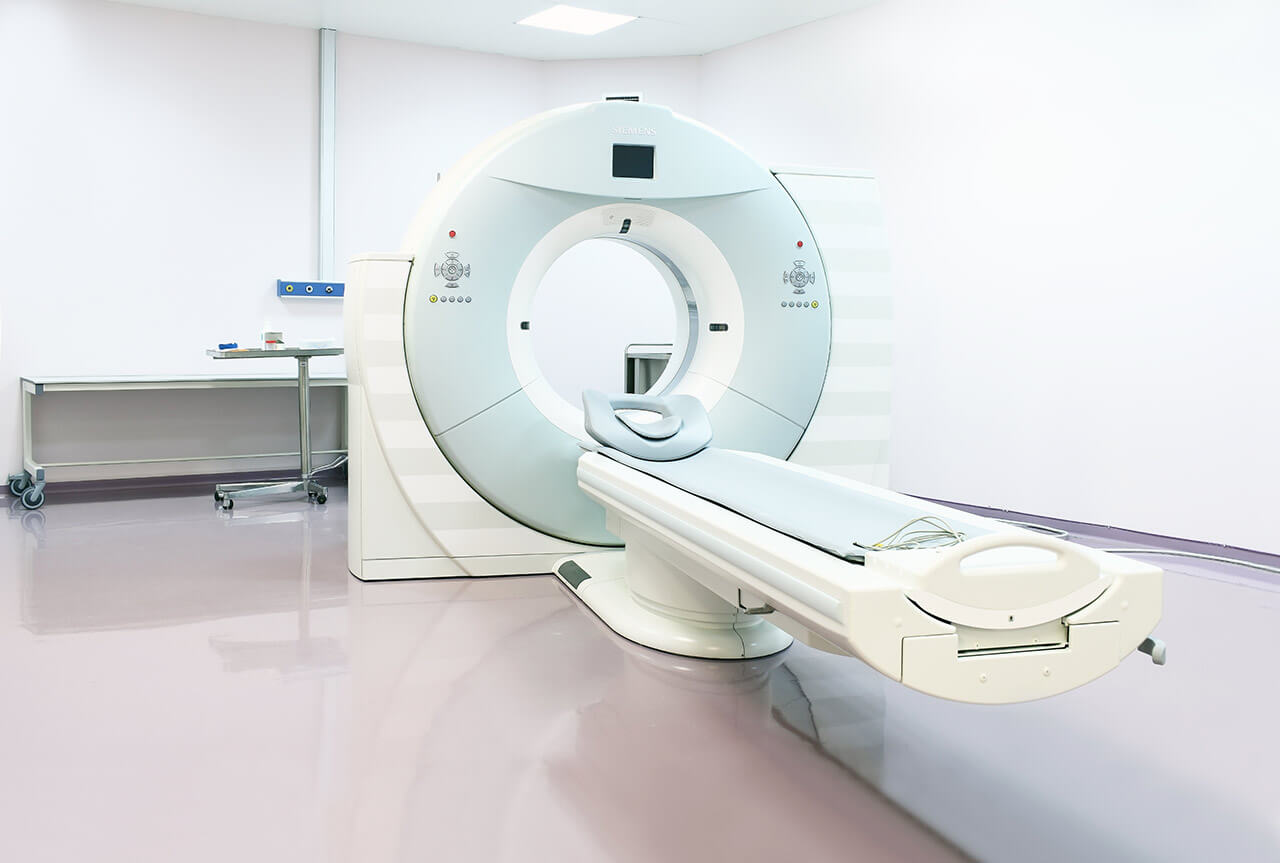
The program includes:
- Initial presentation in the clinic
- clinical history taking
- physical examination
- review of medical records
- laboratory tests:
- complete blood count
- general urine analysis
- biochemical analysis of blood
- TSH-basal, fT3, fT4
- tumor markers
- indicators of inflammation
- indicators blood coagulation
- CT/MRI of the abdomen and chest
- ultrasound/ x-ray examination
- conducting radiotherapy
- symptomatic treatment
- the cost of essential medicines and materials
- nursing services
- control examinations
- explanation of future recommendations
Required documents
- Medical records
- MRI/CT scan (not older than 3 months)
- Biopsy results (if available)
Service
You may also book:
 BookingHealth Price from:
BookingHealth Price from:
About the department
The Department of Radiation Therapy at the HELIOS University Hospital Wuppertal offers the full range of irradiation procedures for benign and malignant diseases. The department has advanced equipment and highly qualified personnel, which allows providing patients with medical services meeting the highest international standards. The department's specialists have two Varian linear accelerators with a built-in CT scanner with a conical beam and RapidArc technology, Siemens Somatom Definition AS CT scanner for radiation therapy planning, Varian GammaMed iX system for contact radiation therapy using the afterloading technique, Zeiss IntraBeam X-ray therapy device for intraoperative radiation therapy for breast cancer, X-Strahl 200 X-ray therapy device, Varian device for precise positioning of patients before radiation therapy and other equipment. State-of-the-art equipment guarantees high-precision irradiation with minimal damage to healthy tissues. Cancer treatment is of particular interest to the team of the department's radiation therapists. In addition, the department's specialists successfully carry out irradiation for inflammatory joint diseases with severe pain syndrome. The doctors of the medical facility cooperate closely with oncologists and other doctors of related specialties. The Head Physician of the department is Prof. Dr. med. Marc Piroth.
The first stage of the therapeutic process is a consultation with a radiation therapist, during which the specialist talks about the possible radiation therapy options and answers the patient's questions. After that, the doctor and the patient together decide which type of radiation therapy will be the most suitable. Immediately before the start of the course of treatment, the planning of the upcoming radiation therapy using computed tomography is carried out. As a rule, radiation therapy is carried out on an outpatient basis, and the radiation session takes only 15-30 minutes. During the procedure, the patient does not experience painful sensations. The duration of the course of treatment depends on the particular disease and the type of radiation therapy – these are 1-5 radiation sessions for stereotactic surgery and 15-20 sessions for external beam radiation therapy. Most patients tolerate radiation therapy well and do not experience any side effects. In rare cases, patients still develop side effects, but they completely disappear within 2-3 weeks after the completion of treatment.
The department's specialists quite often carry out radiation therapy for breast cancer, which is one of the most common types of oncology in women. Intraoperative radiation therapy is an innovative type of irradiation that has proven to be highly effective in breast cancer treatment. The technique involves the targeted direction of radiation to the tumor bed during surgery. The therapeutic procedure allows the doctors to affect the tumor with a high dose of radiation without affecting healthy adjacent tissues. Another modern type of radiation therapy for breast cancer is respiratory gating radiotherapy. This type of therapy is used in patients with left breast cancer: the position of the internal thoracic organs (heart and lungs) changes during breathing, and respiratory gating radiation therapy reduces radiation exposure to these vital organs. During irradiation, the patient's breathing cycle is monitored using a special sensor, and the transfer of information from the sensor to the control system of the linear accelerator makes it possible to determine the optimal time for irradiation. Thus, the impact on the heart and lungs is minimal, which prevents the development of severe chronic diseases in the future.
The most common oncology in men is prostate cancer. In some cases, radiation therapy is required to kill the malignant cells. For the treatment of prostate cancer, the department's doctors use external beam radiation therapy – intensity-modulated radiation therapy (IMRT), volumetric modulated arc therapy (VMAT) and image-guided radiation therapy (IGRT).
Brain tumors and metastases are treated with stereotactic radiation therapy. This type of radiation is one of the most progressive in modern medicine, since it allows the doctors to direct a high dose of radiation with maximum accuracy to a strictly limited area of the brain. The therapeutic procedure is preceded by CT-guided 3D planning, which guarantees high accuracy and safety of radiation delivery.
The department pays key attention to the treatment of the following diseases:
- Benign diseases
- Inflammatory joint diseases with severe pain syndrome
- Malignant diseases
- Breast cancer
- Uterine and cervical cancer
- Prostate cancer
- Brain cancer and brain metastases
- Colon cancer
- Skin cancer (basal cell carcinoma, malignant melanoma, Merkel cell carcinoma)
- Other pathologies
The department’s range of therapeutic services includes:
- Intensity-modulated radiation therapy (IMRT)
- Volumetric modulated arc therapy (VMAT)
- Image-guided radiation therapy (IGRT)
- Stereotactic radiation therapy
- Intraoperative radiation therapy
- Respiratory gating radiotherapy
- Irradiation of superficial tumors
- Brachytherapy (contact radiation) for cervical cancer treatment
- Combined chemoradiotherapy
- Irradiation for palliative purposes
- Other types of radiation therapy
Curriculum vitae
Prof. Dr. med. Marc Piroth is the Head Physician of the Department of Radiation Therapy at the HELIOS University Hospital Wuppertal. The professor is deservedly a recognized expert in the field of radiation therapy and has additional qualifications in palliative care. Thanks to long experience and clinical practice, Dr. Piroth has gained fame not only in Germany, but also in many other European countries. In parallel with his clinical practice, the doctor is engaged in research activities and lectures at various higher educational institutions. Prof. Marc Piroth is an honorary member of the German Cancer Society and the German Society for Radiation Oncology (DEGRO). He also works in the certification organization OnkoZert of the German Cancer Society (Certification Expert for Breast Centers and Gynecologic Cancer Centers).
Photo of the doctor: (c) Helios Universitätsklinikum Wuppertal
About hospital
According to the prestigious Focus magazine, the HELIOS University Hospital Wuppertal ranks among the top medical facilities in Germany!
The hospital rightfully enjoys the status of the maximum care medical facility and provides its high-quality services in all modern fields of medicine. The hospital operates on the basis of the Witten/Herdecke University, which was opened in 1982 and today is considered one of the best in Germany. Thus, many head physicians of the medical complex are in charge of the corresponding department at the university, which contributes to the close intertwining of research activities and clinical practice. The hospital has long traditions and its own values – the main goal of doctors is to provide comprehensive medical care focused not only on curing the disease, but also on the patient's personal needs.
The hospital has 1,000 beds. The doctors of the medical facility admit more than 50,000 inpatients annually. In addition, more than 100,000 outpatients undergo diagnostic and therapeutic procedures. Such high attendance rates speak for themselves and are undeniable proof of the high-quality medical service of the European level. The medical staff of the hospital has more than 2,500 employees, whose main task is to restore the patient's health and provide him with a decent quality of life.
The hospital has more than 26 specialized departments, as well as many narrowly focused centers and institutes dealing with the treatment of patients suffering from a particular group of diseases: Breast Center, Cancer Center, Cardiology Center, Trauma Center, Spine Center and others. The primary clinical focus of the medical center is cancer treatment.
For more than 25 years, the hospital has been running a special quality management system for medical care, which regulates the aspects of work of the medical staff, compliance with hygiene and safety standards during diagnostics and treatment. Consequently, patients can be sure that their health is in the safe hands of true professionals who work in accordance with the latest medical standards.
Special attention should be paid to the honors of the hospital for excellent patient care. The medical complex has quality certificates from the German Cancer Society (DKG), the German Trauma Society (DGU), the German Cardiac Society (DGK), the German Stroke Society (DSG) and other professional German societies.
Photo: (с) depositphotos
Accommodation in hospital
Patients rooms
The patients of the HELIOS University Hospital Wuppertal live in comfortable single, double, triple and quadruple rooms. Each patient room has an ensuite bathroom with shower and toilet. The standard room furnishings include a comfortable automatically adjustable bed, a bedside table, a wardrobe, a TV and a telephone. The hospital has Wi-Fi (free). For maximum patient comfort, there is a nurse call device on the bedside table. This device allows the patient to control the TV, radio, turn on or off the lights, and adjust the position of the bed.
The patients of the hospital are also offered accommodation in enhanced-comfort rooms. These rooms additionally provide a safe and a free minibar with soft drinks. The enhanced-comfort rooms also have a spacious bathroom with hairdryer, bathrobe, towels and toiletries.
Meals and Menus
The patients of the hospital are offered three meals a day: breakfast, lunch and dinner. The menu offers a variety of delicious dishes to suit all tastes, including dietary and vegetarian options.
The hospital also has a bistro where one can taste delicious hot dishes, cold snacks, desserts, as well as a cup of tea, coffee or refreshments.
The patients staying in enhanced-comfort rooms are offered a separate menu that includes a wider and more refined range of dishes. In addition, fresh fruit, tea, coffee and desserts are delivered to the patient room every day, if desired.
Further details
Standard rooms include:
Religion
The religious services are available upon request.
Accompanying person
During an inpatient program, your accompanying person can stay with you in the patient room or in the hotel of your choice.
Hotel
During an outpatient program, you can stay in the hotel of your choice. Our managers will help you choose the most suitable options.




